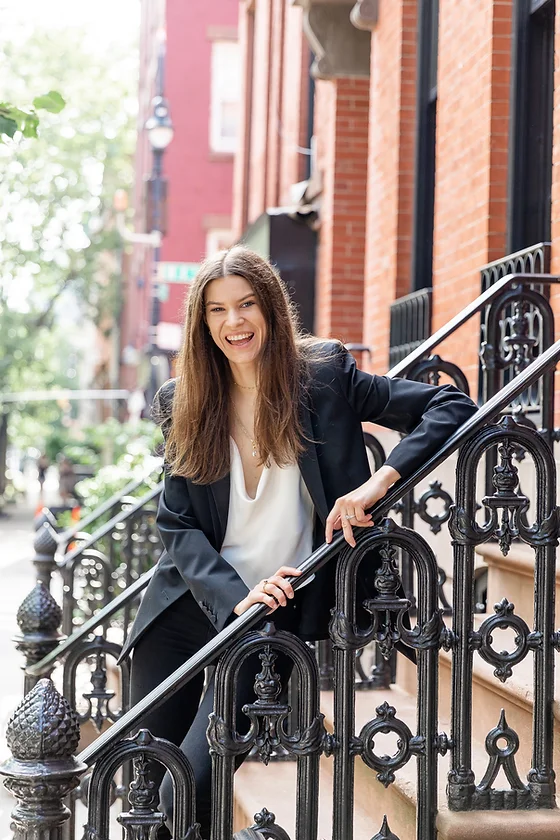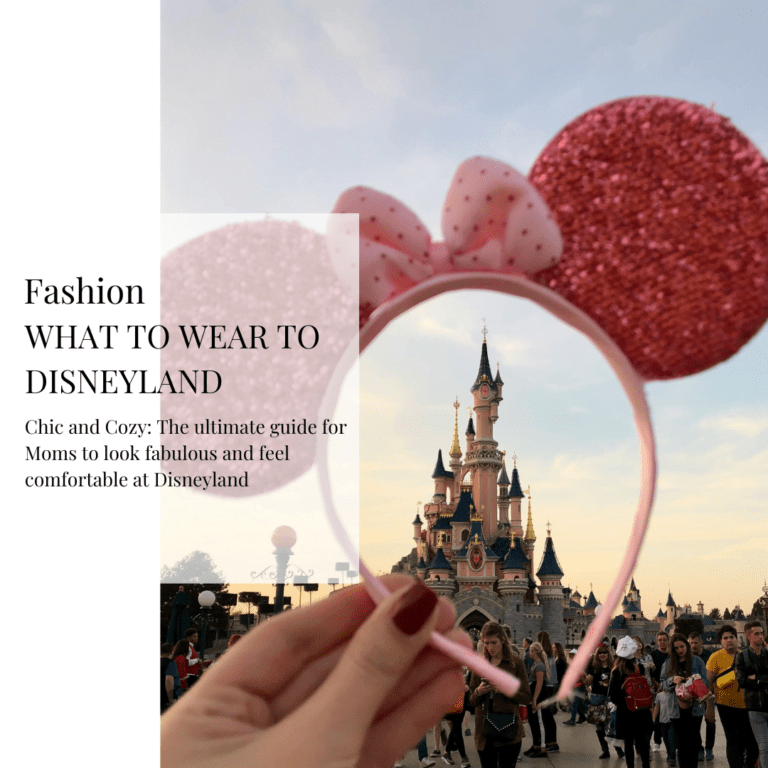
Hey there, lovely readers! Can you believe it’s our 100th blog post? Time flies when we’re talking about all things food, health, and lifestyle! To celebrate this milestone, I wanted to explore a topic that’s close to my heart: finding the best registered dietitian in NYC to help guide us on our health journey. That’s why I’m thrilled to share this conversation with a registered dietitian who knows her stuff.
For me, health isn’t about following the latest diet trend or stressing over the number on the scale. It’s about feeling strong, energized, and confident. It’s about fueling our bodies with the right foods and creating habits that stick. And if you’re looking for the best dietitian in NYC to help you do that, you’re in the right place.
Join me as I chat with Paula Doebrich, an expert who’s here to share tips on mindful eating, building balanced plates, and embracing a healthy, sustainable lifestyle. Ready to learn from the best? Let’s go ahead and begin!
Hi Paula, thanks for joining us today! Can you introduce yourself and tell us a little about your background as a dietitian?
Answer: Sure! I’m Paula, a registered dietitian based in NYC. I help people develop healthy eating habits that fit their lifestyles. My focus is on long-term health and prevention, and I’ve worked with a variety of clients, from those looking to manage weight to those with specific health issues. It’s a fulfilling job, and I love being able to educate people about the power of food.
So, you moved to New York City to pursue your modeling career. How was that experience for you?
Answer: “It was a big step in my life. I was about 15 when I decided to move to NYC to get serious about modeling. New York is the heart of fashion, and it felt like the best place to be if I wanted to grow in my career. It was a big change, and it took some getting used to. The city is fast-paced, and there’s always something happening. But I loved the energy, and it motivated me to keep going.”
That sounds exciting! How did NYC help shape your career as a model?
Answer: “Living in New York really pushed me to become better. There’s a lot of competition, but it also opened up great opportunities for me. I worked with top agencies, took part in major shows, and learned so much about the business. But what really changed was that I realized how important it was to take care of my body to keep up with all the demands of the industry.”
I can imagine. Was that when you first learned about dieting and nutrition?
Answer: “Yes, exactly. When I started working as a model, I had to stay in shape for the shows. That’s when I first came across the idea of dieting. At the time, I didn’t think much of it. But now, looking back, I realize that some of the diets I followed weren’t healthy. For example, I was on a 1500-calorie diet to stay slim, which wasn’t good for my health. This experience made me curious about nutrition and food, and eventually, that led me to become a registered dietitian in nyc.”
So, how do you approach eating habits with your clients? What’s the first thing you teach them?
Answer: I focus on balance. It’s not about restriction, but about incorporating a variety of healthy foods. I teach clients how to make better food choices and how to listen to their bodies. Whether it’s learning portion control or choosing nutrient-dense foods, it’s all about sustainable habits that fit into their busy lives. It’s not a one-size-fits-all approach.
You mentioned “happy nutrition” earlier—can you explain what that means?

Answer: Happy nutrition is about finding joy in the food you eat. It’s about eating in a way that supports your health but also brings you pleasure. Food should be something to enjoy, not something to feel guilty about. Life is too short to be stressed about every bite. It’s about finding that balance, enjoying food, and staying healthy at the same time.
What’s the difference between a dietitian and a nutritionist?
Answer: The main difference is that dietitians are licensed professionals who can provide medical nutrition therapy, while nutritionists may not have the same formal qualifications. Dietitians have a rigorous academic background and are registered with a governing body, so we have the expertise to deal with medical conditions. For example, registered dietitians can work with patients who have diabetes, heart disease, or other chronic conditions.
So, what exactly does a dietitian do?
Answer: As a registered dietitian in NYC, I assess people’s nutritional needs and develop personalized meal plans. I help clients manage chronic conditions like diabetes and heart disease through diet, and I also provide education on healthy eating habits. The goal is to improve overall health through food. A clinical dietitian can work in a variety of settings, from hospitals to outpatient clinics, offering tailored nutrition advice.
We’ve touched on this, but why is it important to see a dietitian instead of just a nutritionist?
Answer: A dietitian is trained to provide medical nutrition therapy. We’re qualified to help manage health conditions, and we work in hospitals, clinics, and other healthcare settings. Nutritionists may not have the same clinical expertise. So, if someone is dealing with health issues like high blood pressure or obesity, a registered dietitian in NYC is the best option to guide them toward better health.
How important are food labels, and what should people look for when reading them?
Answer: Food labels are essential for making informed decisions. I tell clients to pay attention to serving sizes, ingredients, and the nutrient breakdown. Look for high fiber and protein content, and avoid excessive sugars or unhealthy fats. It’s a quick way to assess if a food item fits into a healthy eating plan. Learning to read food labels is one of the first steps in gaining control over your eating habits.
Let’s talk about sugar addiction. Why is it so hard to cut sugar out of our diets?
Answer: Sugar triggers the release of dopamine, which makes us feel good. Over time, this leads to cravings, and it becomes addictive. Research shows that sugar can affect the brain similarly to addictive substances. To break the cycle, we can gradually reduce sugar intake and replace sugary snacks with healthier options. It’s not about eliminating sugar completely, but finding a balance. We often have to rewire our relationship with sugar.
How do you help people prevent chronic diseases through nutrition?
Answer: Prevention starts with education. I encourage clients to focus on a balanced diet, regular exercise, and stress management. By making small, consistent changes—like cutting down on sugar or increasing fiber—we can prevent diseases like diabetes and heart disease before they develop. Nutritionists and dietitians play a key role in this process by helping people understand how their food choices impact their long-term health.
Food insecurity is a major issue. How does it impact nutrition?
Answer: Food insecurity makes it harder to access healthy food. People often turn to cheap, processed foods that lack nutrition, leading to poor health. As a dietitian, I help by teaching clients how to make healthier choices with limited resources. Small adjustments, like incorporating more affordable fruits and vegetables, can make a big difference. It’s about making the most of what you have and still focusing on health.
How do nutritional needs change with age?
Answer: As we age, our bodies need different nutrients. Older adults often require more calcium and vitamin D for bone health, while children need more energy and nutrients for growth. Each stage of life has its own nutritional needs, which is why personalized nutrition is so important. Working with a dietitian ensures that the diet is tailored to meet those specific needs, whether it’s for a growing child or an older adult with different health priorities.
The keto diet is really popular right now. What’s your take on it?
Answer: The keto diet can be effective for short-term weight loss, but it’s not for everyone. It’s a high-fat, low-carb diet that puts the body in ketosis, but not everyone can maintain it long-term. I always recommend speaking with a dietitian before starting any restrictive diet to ensure it’s safe and right for you. A clinical dietitian can help assess whether the keto diet aligns with your long-term health goals and nutritional needs.
What are some simple tips for getting a balanced diet?
Answer: Aim for variety. Fill half your plate with vegetables and fruits, including lean proteins, whole grains, and healthy fats. Drink plenty of water, and try to limit processed foods. A balanced diet doesn’t have to be complicated—it’s all about moderation and consistency. A registered dietitian can help you create a personalized plan that fits your lifestyle and goals.
Food bullying is a big issue. How can we address it?
Answer: Food bullying occurs when people are judged for their food choices, which can lead to shame and poor self-esteem. It’s important to create a supportive environment where everyone feels comfortable making healthy choices without fear of judgment. As a dietitian, I encourage people to embrace their food choices without shame. We all have different needs, and those should be respected.
What’s the best way to develop healthy eating habits?
Answer: Start small. Set realistic goals, like adding more vegetables to your meals or drinking more water. It’s about making gradual changes that you can stick with. Consistency is key, and remember—it’s okay to slip up as long as you get back on track. A dietitian can support you in this journey, helping you stay motivated and focused on your health goals.
Any final advice for people looking to improve their health?
Answer: Don’t be too hard on yourself. Focus on making small, sustainable changes. A registered dietitian in nyc can help guide you through the process, so don’t hesitate to reach out if you need help. It’s all about developing healthy habits that you can maintain long-term. You don’t have to be perfect, just consistent.
Final Thoughts
As I conclude this insightful conversation with Paula Doebrich, I’m reminded of how deeply food shapes our lives. It’s more than just counting calories or macronutrients—it’s about fueling our bodies, uplifting our well-being, and creating meaningful connections with ourselves and those around us. So, let’s celebrate the power of food and make each meal a step toward vibrant health and happiness. And if you’re looking for guidance, consulting the best registered dietitian in NYC could be your first step to a healthier, happier you.
Click here to watch the full interview.
Is seeing a registered dietitian worth it?
Yes, a registered dietitian is worth seeing for personalized advice on improving health, managing conditions, and making long-term, sustainable dietary changes.
What is the difference between a nutritionist and a dietitian?
A dietitian is a licensed professional with formal training who can provide medical nutrition therapy, while a nutritionist may not have the same qualifications and is limited to general advice.
Who needs a dietitian?
Anyone looking to improve health, manage a health condition, or develop healthier eating habits can benefit from seeing a dietitian. This includes people with conditions like diabetes, high blood pressure, heart disease, irritable bowel disease, food allergies/intolerance, cancer, kidney disease, and many more. A dietitian can provide personalized recommendations to help you meet your health goals.
Can dietitians give medication?
No, dietitians cannot prescribe medication. They focus on nutrition therapy and work alongside doctors to support health through diet.
Suggestive Reads
Nourishing Mornings: The Power of Fruits and Veggies in Your Breakfast Routine
Embracing the Health Benefits of Your Favorite Teas
Crunchy Shaved Brussels Sprouts Salad Recipe (With Walnuts, Cranberries & Dijon Mustard)








